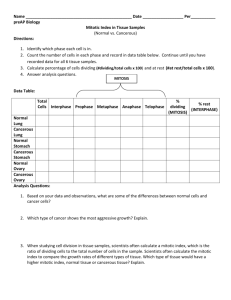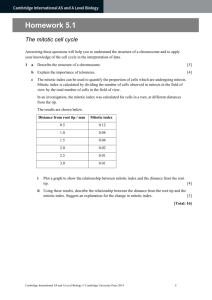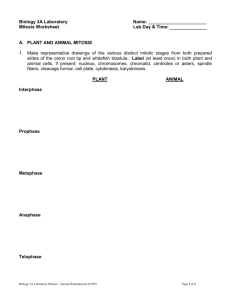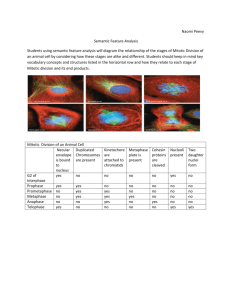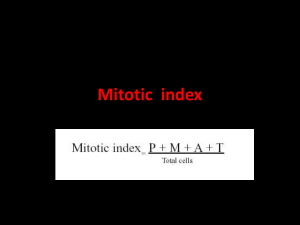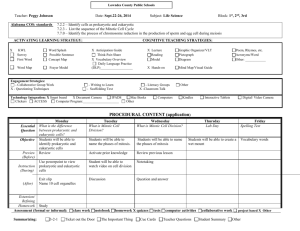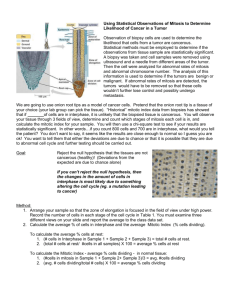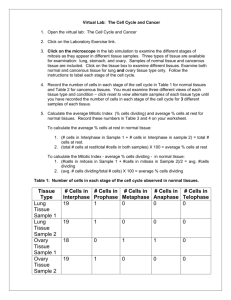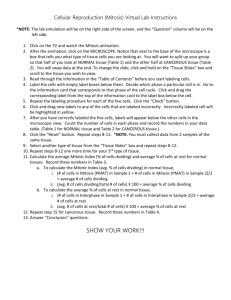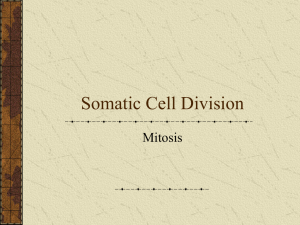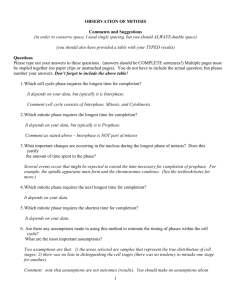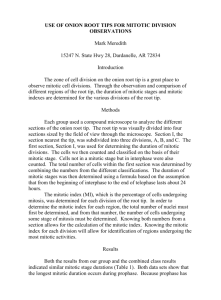Mitotic Index Worksheet: Cell Division & Cancer Analysis
advertisement
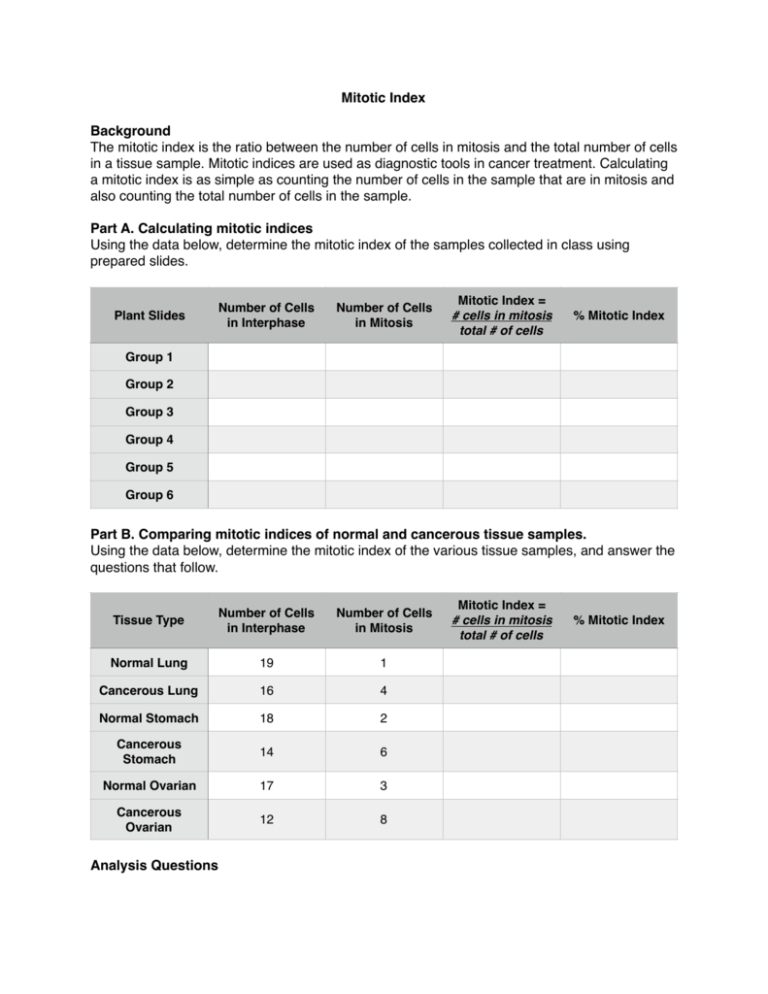
Mitotic Index Background The mitotic index is the ratio between the number of cells in mitosis and the total number of cells in a tissue sample. Mitotic indices are used as diagnostic tools in cancer treatment. Calculating a mitotic index is as simple as counting the number of cells in the sample that are in mitosis and also counting the total number of cells in the sample. Part A. Calculating mitotic indices Using the data below, determine the mitotic index of the samples collected in class using prepared slides. Plant Slides Number of Cells in Interphase Number of Cells in Mitosis Mitotic Index = # cells in mitosis total # of cells % Mitotic Index Group 1 Group 2 Group 3 Group 4 Group 5 Group 6 Part B. Comparing mitotic indices of normal and cancerous tissue samples. Using the data below, determine the mitotic index of the various tissue samples, and answer the questions that follow. Tissue Type Number of Cells in Interphase Number of Cells in Mitosis Normal Lung 19 1 Cancerous Lung 16 4 Normal Stomach 18 2 Cancerous Stomach 14 6 Normal Ovarian 17 3 Cancerous Ovarian 12 8 Analysis Questions Mitotic Index = # cells in mitosis total # of cells % Mitotic Index 1. Compare the mitotic indices that were calculated from the samples collected off of the microscopes in class. Is this what you would expect? Why or why not? 2. Compare the mitotic indices of the normal tissue samples to the cancerous tissue samples from the second data set. 3. What do the three cancer samples tell you about the growth rates of these types of cancer? What implications might this have for screening, diagnosis, and treatment of these types of cancers?
